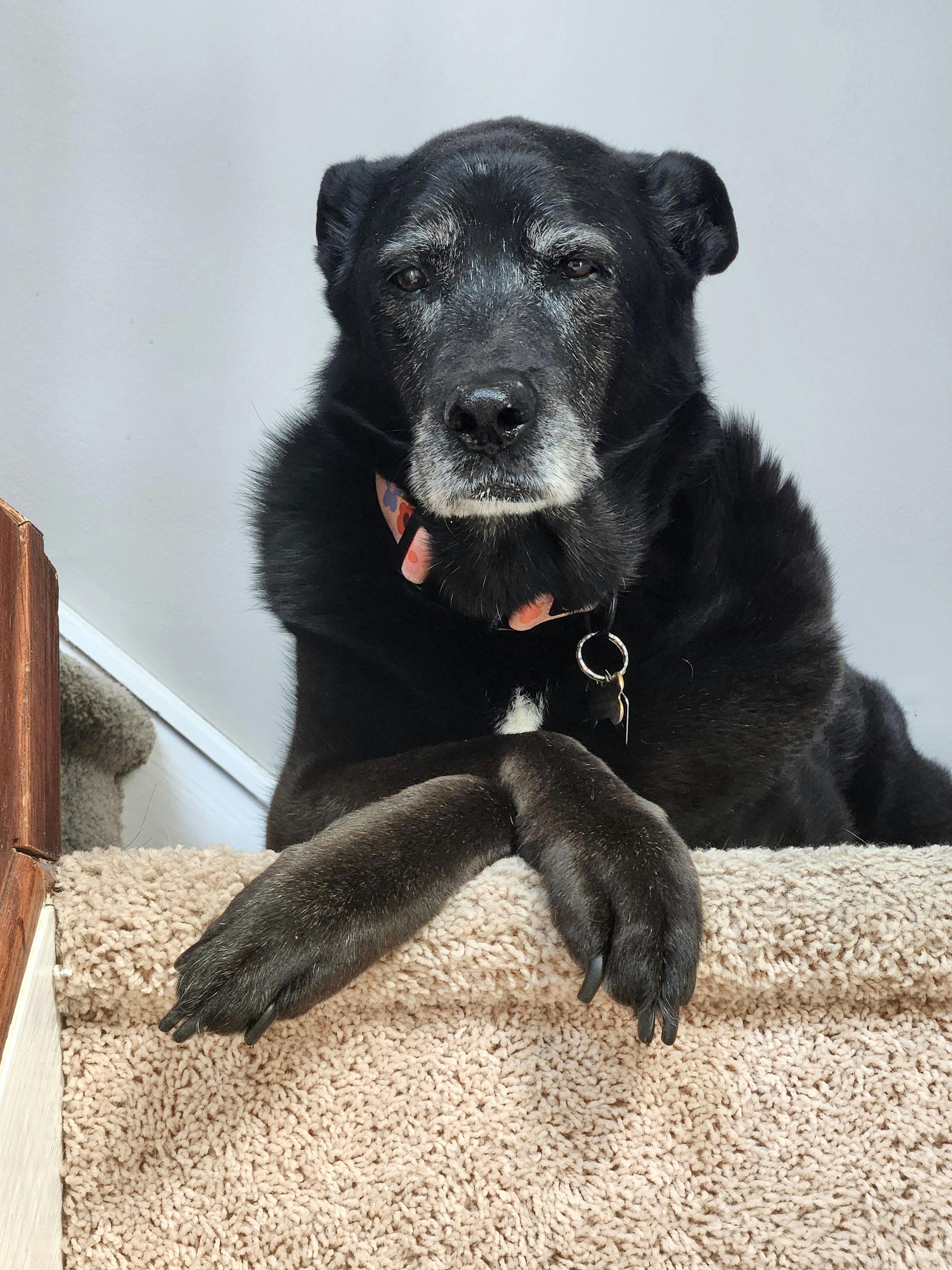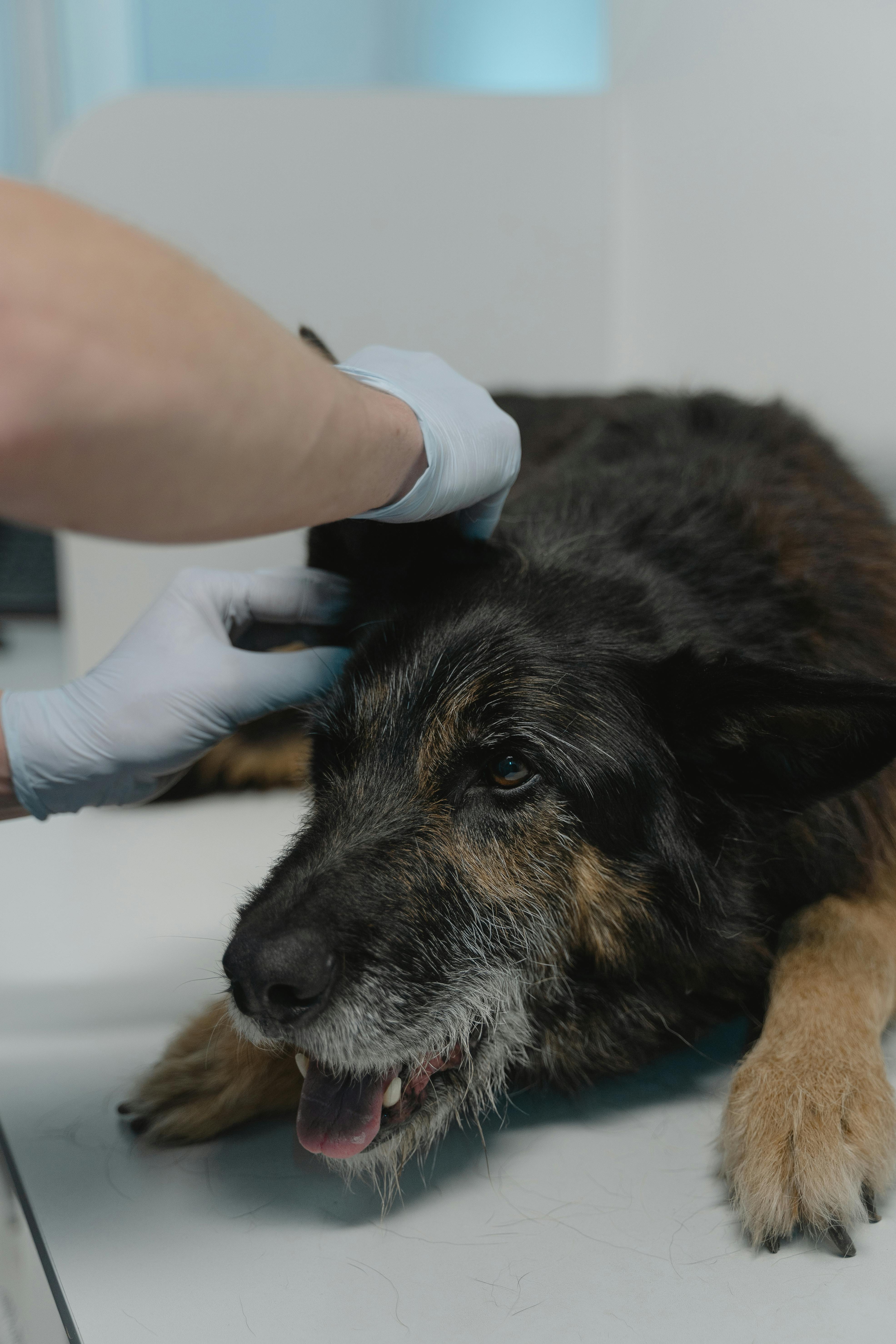5 Things You Should Know Before Adopting a Senior Dog
When people visit animal shelters, it’s often the puppies and young dogs that catch their attention first. Their energy, playful antics, and potential for many years together make them appealing.
Unfortunately, this means older dogs are too often overlooked. Yet senior dogs—those in their golden years—have so much to offer.
They may not have boundless puppy energy, but they bring loyalty, gentleness, and companionship that can enrich a household in unique ways. If you’re considering adopting a dog, it’s worth looking beyond the younger ones to see the incredible qualities of seniors.
What Age Makes a Dog a Senior?
The age when a dog is considered “senior” depends largely on its size. Medium and large breeds generally reach senior status at around 7 years old. Smaller breeds, which tend to live longer, aren’t considered seniors until about age 11.
On the other hand, giant breeds often earn the title much earlier, sometimes as young as 5, because of their shorter lifespans. While the label may sound old, many senior dogs are still active, healthy, and eager to enjoy life with the right family.
The age when a dog is considered “senior” depends largely on its size.

1. Senior Dogs Are Often Overlooked
Each year, millions of dogs enter shelters across the United States. Sadly, senior dogs are adopted at far lower rates than younger ones—only about 25% compared to 60% of puppies and young adults. Some potential adopters worry about health issues, shorter lifespans, or the emotional difficulty of saying goodbye sooner.
Others hesitate because older dogs may have unknown histories. But the reality is that senior dogs still have much love to give. Offering them a home not only transforms their lives but also gives you the reward of knowing you’ve provided safety, comfort, and joy when they need it most.
Before adopting a senior dog, it's crucial to consider their specific health needs. Veterinarians recommend scheduling a thorough health check to identify any issues that may require immediate attention. Dr. Neal Barnard, a physician and health advocate, emphasizes the importance of tailored nutrition and regular veterinary check-ups for senior pets.
Establishing a comfortable routine, including gentle exercise and mental stimulation, can significantly enhance a senior dog's quality of life. Simple activities like short walks and interactive toys can keep them engaged and healthy. This proactive approach can ensure that both you and your new friend enjoy a fulfilling companionship.
2. Yes, You Can Teach an Old Dog New Tricks
The saying may be familiar, but it’s not true—senior dogs can absolutely learn new things. Many are already housebroken and may know basic commands, which makes transitioning them into your home easier than starting from scratch with a puppy. At the same time, they are often eager to learn new skills.
Teaching simple tricks or reinforcing household rules not only strengthens your bond but also keeps their minds sharp. Engaging them in training builds confidence and gives them a sense of purpose.
If you prefer a peaceful environment, senior dogs are an excellent match

They Bring Calm and Balance to the Home
If you prefer a peaceful environment, senior dogs are an excellent match. Unlike puppies, who often chew, dig, and demand constant playtime, older dogs are usually past that stage.
They tend to be calmer, more predictable, and content with relaxed routines. Families who enjoy a slower lifestyle—or who want a gentle companion for children or older adults—often find that a senior dog is the perfect fit.
Their mellow personalities bring stability and comfort that younger dogs sometimes lack.
They’re Already Grown With Established Personalities
Adopting a puppy can be a gamble—you don’t always know how large they’ll get or how their temperament will develop. With a senior dog, what you see is what you get.
Their size, personality, and behavior patterns are already clear, which takes away much of the guesswork. Most have outgrown destructive habits like chewing on shoes or jumping on guests.
This predictability makes it easier to find a dog whose personality truly matches your household.

The Benefits of Senior Dogs
Senior dogs often come with a wealth of experience and calmness that younger dogs may lack. According to Dr. Julie Buzby, a veterinarian and founder of ToeGrips, senior dogs can be exceptionally adaptable and gentle companions, making them ideal for families looking for a more peaceful pet experience.
These dogs usually have established temperaments, meaning they often display less destructive behavior and are more likely to fit seamlessly into a home. This adaptability can foster a nurturing environment for both the dog and the family.
Adopting a Senior Dog Requires Some Preparation
While senior dogs bring many advantages, they may need extra care to stay comfortable. Before bringing one home, schedule a vet visit to check for health conditions and discuss any long-term needs.
At home, simple changes can make life easier. Dog stairs or ramps help with climbing onto couches or into cars. Orthopedic beds provide joint support, while rugs on slippery floors prevent falls. Elevated food bowls can reduce strain during mealtimes, and soft toys keep playtime safe and fun.
Keeping up with flea, tick, and heartworm preventatives is just as important for seniors as it is for younger dogs. These small adjustments ensure your new companion can thrive in your home.

Finding a Senior Dog Near You
If you’re ready to adopt, start with your local animal shelter. Many senior dogs are waiting for homes, often surrendered through no fault of their own. If you’re looking for a specific breed, search for breed-specific rescues, many of which transport dogs across state lines. Shelter staff can also guide you toward senior dogs with personalities that would fit your lifestyle.
Why Choosing a Senior Dog Is Worth It
Adopting a senior dog may come with unique challenges, but the rewards far outweigh them. These dogs are loyal, affectionate, and grateful for the love they receive. They may not be with you for as long as a puppy, but the time you do share will be filled with devotion and companionship.
The adjustment process usually follows what’s known as the 3-3-3 rule: three days to settle in, three weeks to feel more comfortable, and three months to fully trust and feel at home. With patience and care, your senior dog will become an inseparable part of your family.
Building Healthier Patterns
Adopting a senior dog can be a deeply rewarding experience, not just for the pet but for the family as well. Experts like the ASPCA advocate for the benefits of giving these dogs a second chance, highlighting how they can offer love and companionship in their twilight years. By understanding their unique needs and providing proper care, you can create a fulfilling environment for both you and your senior dog.
Remember, the bond formed through this compassionate act can be one of the most enriching experiences possible, enriching lives in ways you may not have imagined.



